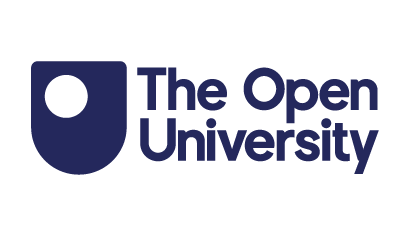An introduction to project management – How to manage projects effectively
Learn the basics of project management, why it’s such a valuable skill, and the tools and methodologies that can help you on your way.

The ability to effectively plan, execute, and review projects is a skill that’s useful across all industries and sectors. It’s one of the reasons why project management is a highly sought-after ability. But what exactly is it? Why is it so useful? And how do you get started with project management?
We explore and answer these key questions, examining the different types of project management, the different skills you’ll need to succeed, and how you can get started with your project management training.
What is project management?
Let’s start with a project management definition. We all manage projects in our day-to-day lives, though these are usually small and relatively insignificant tasks, such as making a meal or grocery shopping. Yet in a professional sense, it’s a much more involved process.
As we explore in our open step on defining project management, we can think of the skill as the discipline of utilising well-known principles, procedures and policies to manage a project from start to finish.
Those who manage projects often must coordinate and integrate human input and physical components within the four fundamental constraints: scope, cost, time and quality.
Although it’s easy to think of the concept as a modern-day one, project management is a skill that humans have demonstrated throughout history. You could even say that it dates back as far as the Great Pyramid of Giza, which was completed in 2560 BC.
Of course, the scope and responsibilities of a project manager will change fairly significantly between industries and organisations. However, as we’ll see, many of the fundamentals are applicable across all projects.
Why is project management important?
In our open step on the future of project management, we explored how, over the next decade, it’s estimated that organisations of all sizes and types will require around 88 million project managers. Clearly, it’s an area that is essential and is expected to remain so for years to come. But why is project management important?
There are several reasons why this skill is so sought-after and widely used. We’ve highlighted the importance of project management below:
It helps with organisation
Central to the success of any project is organisation. An effective project manager can ensure that goals are clearly defined, objectives are set, budgets are adhered to, and projects are delivered on time.
Even with the essentials of project management, you can learn to identify the strengths and weaknesses of your project plans.
It keeps teams aligned
Often, business projects require input from various teams and stakeholders. With good project management skills, you can ensure that everyone is aligned to the same goals. Not only does this help the project run smoothly, but it also means that the right people are accountable for their roles and responsibilities.
Ultimately, having a central person ensuring that the various teams deliver their work on time means the project is a success and meets its deadlines. Similarly, the project manager acts as a problem-solver if a particular area is struggling.
It allows for progress
Another key area of project management is measuring how successful a project is. For a business, this means that lessons can be learned about what works and what could be improved on.
In terms of future projects, this means that you can iterate on your success and learn from your mistakes. You can learn more about project management and its role in effective business in our ExpertTrack from Coventry University. Or, explore our range of online business and management courses and gain expert skills and boost your career.
It makes projects more successful
A survey by consulting firm McKinsey & Co found that nearly 60 per cent of senior executives felt that building a strong project management discipline was one of their top priorities for their companies as they look to the future.
The reason for this need for effective managers is that many businesses find that adhering to project management methods and strategies can help to reduce risks, cut costs and improve overall success rates.
-

 Coventry University Project Management: How to be a Successful Project ManagerBusiness & Management2 weeksFind out more
Coventry University Project Management: How to be a Successful Project ManagerBusiness & Management2 weeksFind out more
The types of project management
As you might imagine, there are several ways of approaching a project. As such, you’ll find various project management methodologies. Each has its merits, and each ultimately aims to deliver the best results from a team’s work.
In our open step from Coventry University, we explore some of the project management techniques that you might choose to use. Below, we’ve given some details and examples of where they’re useful:
Waterfall
The waterfall project management method is a traditional approach. The aim here is to manage things sequentially. So, there is the concept and planning phase, followed by the development phase, quality assurance, and finally project completion and maintenance.
With the waterfall methodology, project requirements are usually defined at the beginning stages, with little to no alterations unless absolutely necessary. Waterfall projects usually prioritise the project scope, which can mean that the process is a little rigid.
Agile
Those who use the agile project management methodology emphasise empowering people to collaborate and make team decisions. It’s a method that often uses continuous planning, testing and integration.
As the name suggests, those involved in agile projects must be flexible and adaptable in their work. As the situation changes, so might the workload adapt. It’s usually a collaborative effort, meaning that several people might contribute to the same area of a project.
Adaptive
With an adaptive project management methodology, the project scope is variable, but the time and the costs are fixed for the project. As a result, the scope of the project might be adjusted as the situation develops, usually to achieve the maximum value for the business.
The Adaptive Project Framework (APF) is similar to agile project management in that it’s not a slave to the project scope. In the APF you try and do what you can, ensuring that the project is delivered on time and to budget, even if that means changing certain elements.
Scrum
Those who are looking for an iterative project management style should consider Scrum. When requirements are constantly shifting, scrum project management can deliver projects in a short timeframe and gain quick feedback. When rapid responses are needed, scrum is ideal.
Scrum relies on close collaboration between teams, who will often work in ‘sprints’. These are short units of time (weeks or months) that result in an end product. Often, this means adjustments are made on the fly, and feedback comes in a constant stream.
Lean
The aim of lean project management is to deliver more value and less waste. Usually, this means empowering people to create an environment where self-accountability is a priority. Similarly, concepts such as standardisation and Work Breakdown Structures (WBS) keep work streamlined and process-focused.
Kanban
The Kanban project management style is all about visualising workflows and minimising the work in progress. Those performing the work focus on the quality of what they’re doing while visualising the workflow, even though many tasks are being performed at once.
The plan with kanban is that everyone knows what they’re doing and what is needed from them, because all processes are clearly visible. This method also means that issues can be identified before workflows stall.
PRINCE2
PRINCE2 stands for PRojects IN Controlled Environments. The PRINCE2 project management framework enables an organisation to plan, manage and control a project. It’s quite a generic method, which makes it suitable for projects across all industries.
However, generic doesn’t mean outdated. PRINCE2 is based on the most up-to-date best practices in project management, which makes it a very popular choice among organisations around the world.
The framework is composed of four integrated elements:
- Principles. The foundations of the framework and everything in PRINCE2 is based on these principles, which are tailored to the project environment.
- Themes. This concerns aspects of project management that must be continuously addressed throughout the project.
- Processes. These describe who is responsible for performing the themes at different points in the project.
- Standards. Every project is different so the themes and processes must be tailored to suit the needs of the environment.
-

 Darden School of Business, University of Virginia Fundamentals of Project Planning and ManagementBusiness & Management4 weeksFind out more
Darden School of Business, University of Virginia Fundamentals of Project Planning and ManagementBusiness & Management4 weeksFind out more -

 The Open University Project Management: Beyond the BasicsBusiness & Management4 weeksFind out more
The Open University Project Management: Beyond the BasicsBusiness & Management4 weeksFind out more
Project management tools
So, project management has many styles, although it’s certainly possible to combine elements of different methodologies. But what tools do you need to be a good project manager?
There is no single answer to this question. The exact tools you’ll need will usually depend on the project and industry you’re working in. So rather than recommending specific apps or programs, we’ve picked out some of the areas and tools that often come in useful in the project management process:
- Scope statements. If you want to ensure that your project gets off to a positive start, a scope statement is an essential project management tool. They help you define the resources, deliverables, features, and tasks of the project.
- Gantt charts. A Gantt chart is a visual view of a task over time. They allow for effective project scheduling and tracking from implementation to completion. An essential tool for any project manager.
- Project management software. No matter how complex or simple your project is, keeping track of the tasks, progress, budget, and other factors is difficult with just a spreadsheet. There are many different software packages to choose from, often specialising in certain areas.
- Stakeholder matrix. Stakeholders are those people who have a vested interest in your project and are impacted by its progress. Keeping these people informed of where you’re at and how they’re affected is crucial, and a stakeholder matrix is a useful tool.
- Lessons learned reports. Ultimately, you want to assess how successful your project was and what you can learn for the next one. A lesson learned report can help you get an impartial view of how the project went.
Project management skills
If you’re considering project management training, you might be wondering what types of skills are required. Below, we’ve briefly summarised some of the essential project management skills you’ll need to get started:
- Communication. One of the most important skills for project managers is good communication abilities. You’ll often be working with a wide range of people and stakeholders, and you’ll need to effectively communicate various aspects of the project.
- Leadership. Project management is about leading a team to complete its goals. This means motivating others and getting the best out of them, as well as mediating when issues arise.
- Organisation. As you’ve probably guessed, there’s a lot of organisation that goes into managing projects. To be effective, you’ll have to keep various plates spinning, and being organised is central to this.
- Emotional intelligence. When you’re managing projects, you’ll need to recognise, understand and manage emotions in others. Empathy plays a key role in keeping your teams on task.
- Problem-solving. Even with the best planning, projects can sometimes encounter difficulties. To be a good project manager, you’ll need to be adaptable and have excellent problem-solving skills.
How to get started with project management
If project management sounds like something you want to get into, there are plenty of options available. The route you take depends on your overall aims. If you want to work in a specific industry, for example, the chances are that you’ll need a working knowledge of that area before you get started.
Experience is also incredibly valuable, whether it’s getting involved in projects at your current employer or taking a step into a relevant field.
If you’re eager to learn project management, we also have a variety of courses you can choose from. These include:
- PRINCE2® 6th Edition: Foundation Certification with Official Digital Manual and Exam microcredential
- MSc Project Management online degree
- Practical Project Management microcredential
- Project Management and its Role in Effective Business ExpertTrack
- Foundations of Project Management free online course
- Fundamentals of Project Planning and Management free online course
- Project Management: Beyond the Basics free online course
- Getting Started with Agile and Design Thinking free online course
Final thoughts
Project management is a highly valued and in-demand skill set. By learning and developing your skills in this area, you can find work in almost any industry. What’s more, the demand for good project managers is likely to continue growing.
With a variety of project management styles and methods to choose from, you can find an approach that works for you. By developing your skills with our online courses, you can enhance your CV and find the project management roles best suited to you.
-

 Luleå University of Technology Plan for Project Success: Project Planning and ManagementBusiness & Management3 weeksFind out more
Luleå University of Technology Plan for Project Success: Project Planning and ManagementBusiness & Management3 weeksFind out more -

 Darden School of Business, University of Virginia Getting Started with Agile and Design ThinkingCreative Arts & Media,Business & Management4 weeksFind out more
Darden School of Business, University of Virginia Getting Started with Agile and Design ThinkingCreative Arts & Media,Business & Management4 weeksFind out more







